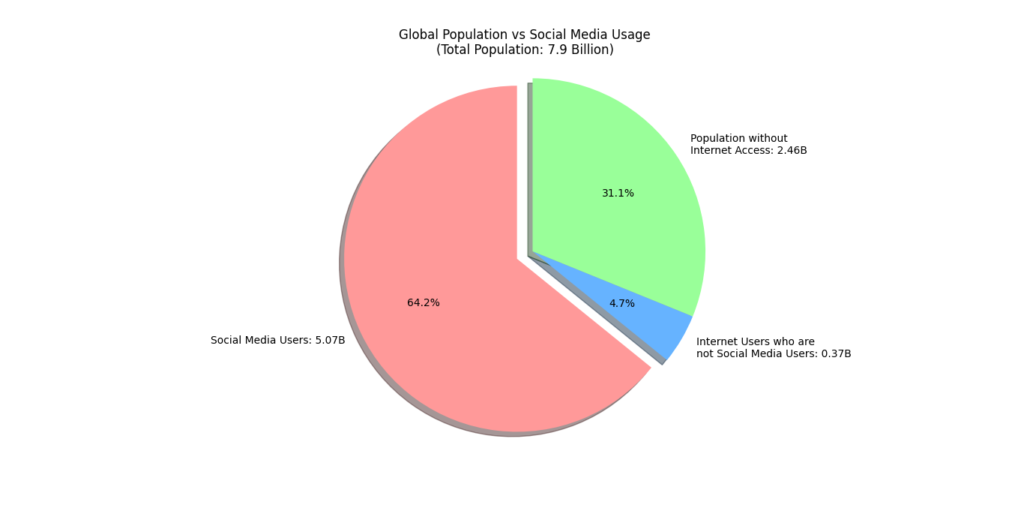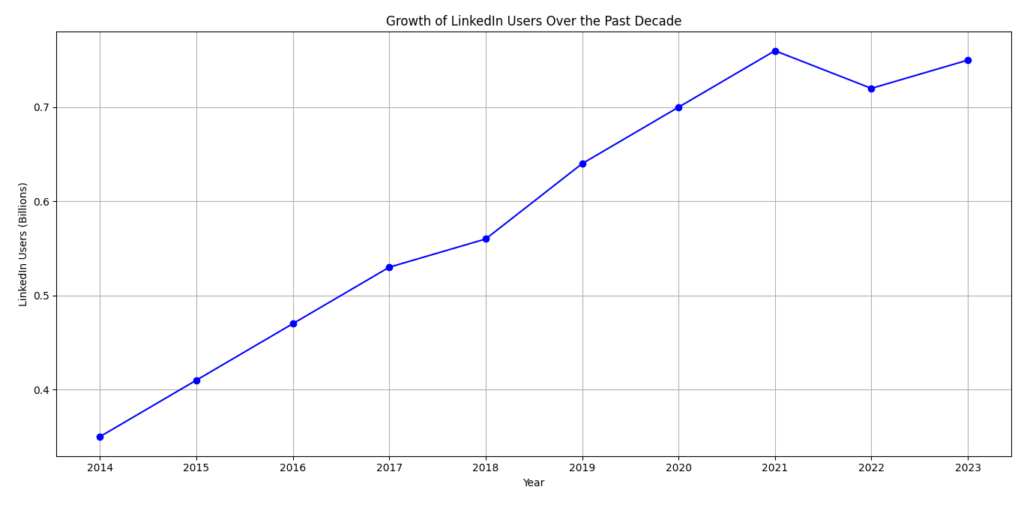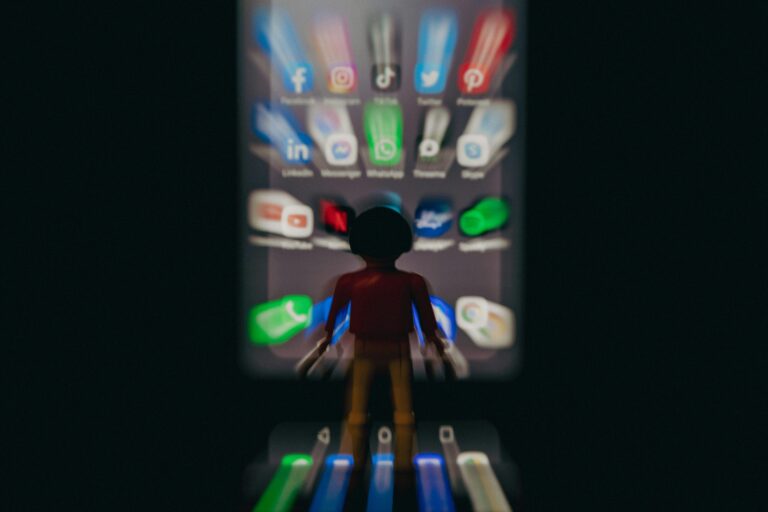Contents [show]
Social Media: The Double-Edged Sword of Modern Life
In this age where our digital footprints often precede us, social media has become an integral part of our daily lives. From the moment we wake up to the last scroll before bed, platforms like TikTok, Facebook, Instagram, LinkedIn, and Twitter shape our perceptions, influence our decisions, and connect us to a global network of individuals and opportunities. But here’s the million-dollar question: When two-thirds of the world population is on social media, are we truly harnessing the power of social media to its fullest potential?

Imagine Sarah, a mid-level marketing executive who’s been in the same role for five years. She’s good at her job, but she’s been feeling stuck lately. One day, while idly scrolling through her LinkedIn feed, she comes across a post about personal branding. Intrigued, she decides to revamp her online presence. Fast forward six months, and Sarah’s not only landed a dream job at a top tech company but has also connected with like-minded professionals who’ve become both mentors and friends.
Sarah’s story isn’t unique. In fact, according to recent data from Hootsuite, 4.74 billion people around the world now use social media [https://blog.hootsuite.com/social-media-statistics-for-social-media-managers/]. That’s more than half the world’s population! But it’s not just about numbers; it’s about the quality of engagement and the opportunities that arise from the strategic use of these platforms.
Let’s dive into ten powerful ways social media can transform both your professional trajectory and personal life, backed by real-world examples and the latest research.
1. Building a Personal Brand
In today’s competitive job market, your personal brand can be your secret weapon. LinkedIn reports that 70% of employers use social media to screen candidates during the hiring process. By consistently sharing industry insights, showcasing your expertise, and engaging with relevant content, you’re not just building a following – you’re crafting a compelling narrative about who you are and what you bring to the table.
Take Gary Vaynerchuk, for instance. He transformed his family’s wine business through innovative social media marketing and has since become a social media icon himself. His journey illustrates how personal branding can open doors to unexpected opportunities.
2. Networking Beyond Boundaries
Remember the days when networking meant awkward cocktail parties and exchanging business cards? Social media has blown those limitations wide open. Platforms like LinkedIn and Twitter allow you to connect with industry leaders, potential mentors, and peers from across the globe. A study by LinkedIn found that 85% of all jobs are filled via networking.
Consider the story of Joshua, a fresh graduate from a small town who landed an internship at a Silicon Valley startup through a Twitter conversation with the company’s CEO. Social media levels the playing field, giving you access to opportunities that were once out of reach.

Sources: LinkedIn, Businessofapps
3. Continuous Learning and Skill Development
In an era where skills can become obsolete overnight, continuous learning is no longer optional – it’s a necessity. Social media platforms have become unexpected hubs of knowledge sharing. From LinkedIn Learning courses to Twitter threads breaking down complex topics, there’s always something new to learn.
According to the World Economic Forum, 50% of all employees will need reskilling by 2025. By following thought leaders, joining professional groups, and participating in online discussions, you’re not just staying updated – you’re future-proofing your career.
4. Showcasing Your Work and Achievements
Gone are the days when your resume was the sole representation of your professional journey. Social media offers a dynamic canvas to showcase your work, whether it’s through LinkedIn articles, Instagram portfolios for creatives, or GitHub repositories for developers.
A survey by Jobvite found that 93% of employers will search for your social media profiles during the hiring process. By curating a strong online portfolio, you’re not just telling potential employers or clients about your skills – you’re showing them.
5. Staying Informed on Industry Trends
In today’s fast-paced world, staying ahead of the curve is crucial. Social media serves as a real-time news feed for your industry. By following key influencers, companies, and news outlets, you can spot trends before they hit mainstream media.
For instance, data from Sprout Social shows that 47% of marketers use social media to stay on top of industry trends. This knowledge can give you a competitive edge in meetings, interviews, or when pitching new ideas.
6. Expanding Your Circle of Influence
Social media isn’t just about consuming content – it’s about creating and sharing your own. By consistently providing value through your posts, you can establish yourself as a thought leader in your field. This not only boosts your career prospects but can lead to speaking engagements, consulting opportunities, and even book deals.
Take the case of Dr. Tomas Chamorro-Premuzic, an organizational psychologist who leveraged his Twitter following to secure a book deal and numerous speaking engagements. His journey shows how social media can amplify your voice and expand your influence far beyond your immediate network.
7. Finding Job Opportunities
The job market has undergone a digital transformation, and social media is at the forefront of this change. A study by Glassdoor found that 79% of job seekers use social media in their job search. Platforms like LinkedIn have become virtual job fairs, with features like “#OpenToWork” making it easier for recruiters to find potential candidates.
But it’s not just about applying to posted jobs. Many opportunities come through the “hidden job market” – positions that are filled through networking before they’re even advertised. By actively engaging on social media, you’re positioning yourself to tap into this lucrative market.
Top 10 Skills for the Future of Work
The ability to understand, use, and manage your own emotions in positive ways to relieve stress, communicate effectively, empathize with others, overcome challenges and defuse conflict.
The use of imagination or original ideas to create something new and valuable in the workplace.
The ability to work effectively with others towards a common goal.
The quality of being able to adjust to new conditions or changes in the work environment.
The objective analysis and evaluation of an issue in order to form a judgment.
The ability to use information and communication technologies to find, evaluate, create, and communicate information.
The ability to convey information effectively and efficiently in various forms.
The capacity to solve novel, ill-defined problems in complex, real-world settings.
The ability to inspect, cleanse, transform, and model data to discover useful information for decision-making.
Understanding of potential security threats in the digital world and how to protect against them.
8. Enhancing Emotional Intelligence
While it might seem counterintuitive, social media can actually help develop your emotional intelligence. By exposing you to diverse perspectives and encouraging empathetic communication, these platforms can hone your ability to understand and relate to others.
A study published in the Journal of Computer-Mediated Communication found that active use of social media was associated with increased empathy. This skill is increasingly valued in the workplace, with a World Economic Forum report listing emotional intelligence as one of the top 10 skills needed for the future of work.
9. Fostering Creativity and Innovation
Social media is a melting pot of ideas from various fields and cultures. This exposure can spark creativity and inspire innovation in your own work. Platforms like Pinterest and Instagram are particularly powerful for visual inspiration, while Twitter’s brevity can challenge you to communicate complex ideas concisely.
Consider how trends like the “Ice Bucket Challenge” or “10 Year Challenge” swept across social media, inspiring countless creative interpretations. By engaging with these trends or creating your own, you’re exercising your creative muscles – a skill that’s invaluable in any career.
10. Building Supportive Communities
Last but certainly not least, social media offers the opportunity to build and participate in supportive communities. Whether it’s a Facebook group for entrepreneurs, a subreddit for your industry, or a Twitter chat for professionals in your field, these communities can provide emotional support, practical advice, and a sense of belonging.
A study by the Pew Research Center found that 68% of Americans feel social media is important for staying in touch with friends and family. This connection isn’t just personal – it can have profound effects on your mental health and overall well-being, which in turn impacts your career performance.
Conclusion
As we’ve explored, social media is far more than a platform for sharing vacation photos or funny cat videos. When leveraged strategically, it becomes a powerful tool for career advancement and personal growth. From building your personal brand to fostering creativity and innovation, the possibilities are endless.
However, it’s important to remember that like any tool, the value of social media lies in how you use it. It requires intentionality, consistency, and a balanced approach. As you implement these strategies, be mindful of your digital footprint and strive to create a positive online presence that aligns with your professional goals and personal values.
In a world where the lines between our online and offline lives are increasingly blurred, mastering the art of social media isn’t just an option – it’s a crucial skill for thriving in the modern world. So, are you ready to take your social media game to the next level? Your future self might just thank you for it.
References:
Hootsuite. (2023). 140+ Social Media Statistics that Matter to Marketers in 2023. https://blog.hootsuite.com/social-media-statistics-for-social-media-managers/
LinkedIn. (2018). LinkedIn Workforce Report June 2018. https://news.linkedin.com/2018/6/linkedin-workforce-report-june-2018
Adler, L. (2016). New Survey Reveals 85% of All Jobs are Filled Via Networking. LinkedIn. https://www.linkedin.com/pulse/new-survey-reveals-85-all-jobs-filled-via-networking-lou-adler/
World Economic Forum. (2020). The Future of Jobs Report 2020. https://www.weforum.org/reports/the-future-of-jobs-report-2020
Jobvite. (2020). 2020 Recruiter Nation Survey. https://www.jobvite.com/wp-content/uploads/2020/10/Jobvite-RecruiterNation-Report-2020.pdf
Sprout Social. (2021). The Sprout Social Index, Edition XVII: Accelerate. https://sproutsocial.com/insights/data/social-media-marketing-statistics/
Glassdoor. (2018). 50 HR & Recruiting Stats That Make You Think. https://www.glassdoor.com/employers/blog/50-hr-recruiting-stats-make-think/
Vossen, H. G. M., & Valkenburg, P. M. (2016). Do social media foster or curtail adolescents’ empathy? A longitudinal study. Computers in Human Behavior, 63, 118-124. https://www.sciencedirect.com/science/article/pii/S0747563216303454
Pew Research Center. (2018). Social Media Use in 2018. https://www.pewresearch.org/internet/2018/03/01/social-media-use-in-2018/


